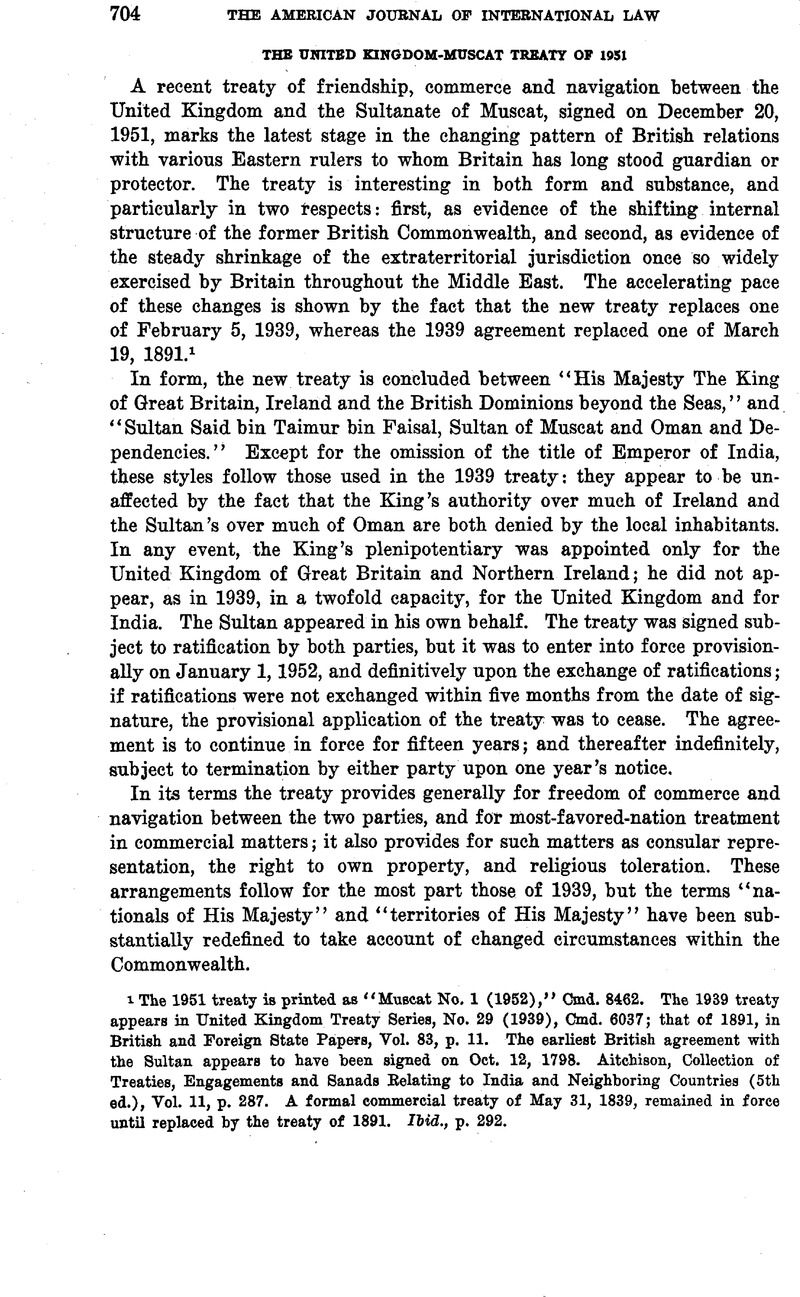No CrossRef data available.
Article contents
The United Kingdom-Muscat Treaty of 1951
Published online by Cambridge University Press: 20 April 2017
Abstract

- Type
- Editorial Comment
- Information
- Copyright
- Copyright © American Society of International Law 1952
References
1 The 1951 treaty is printed as “Muscat No. 1 (1952),” Cmd. 8462. The 1939 treaty appears in United Kingdom Treaty Series, No. 29 (1939), Cmd. 6037; that of 1891, in British and Foreign State Papers, Vol. 83, p. 11. The earliest British agreement with the Sultan appears to have been signed on Oct. 12, 1798. Aitchison, Collection of Treaties, Engagements and Sanads Relating to India and Neighboring Countries (5th ed.), Vol. 11, p. 287. A formal commercial treaty of May 31, 1839, remained in force until replaced by the treaty of 1891. Ibid., p. 292.
2 Kuwait, Bahrein, Qatar, Abu Dhabi, Dubai, Sharjah, Ajman, Umm-al-Qaiwain, Rasal-Khaimah, and Kalba.
3 There is some variation from sheikhdom to sheikhdom with respect to the precise classes of persons subject to British jurisdiction in each. See the following Orders in Council, all of March 29, 1949: Bahrein (Statutory Instrument, 1949, No. 592); Kuwait (No. 593); Muscat (No. 594); Qatar (No. 595); Trucial States (No. 596).
4 Miller, Treaties and Other International Acts of the United States, Vol. 3, p. 789.
5 Basdevant, Traités et conventions en vigeur entre la France et les puissances étrangéres, Vol. 2, p. 592; Vol. 3, p. 71.
6 April 7/Aug. 27, 1877. Martens, Nouveau Recueil Général de Traités, Vol. 4, p. 352.
7 Miller, op. cit., p. 801.
8 By an arrangement which entered into force on May 1, 1952, the British Government relinquished to the Sheikh of Bahrein all jurisdiction it had previously exercised over the nationals in Bahrein of Saudi Arabia, Yemen, Kuwait, Qatar, Muscat and Oman, and the Trucial States.


